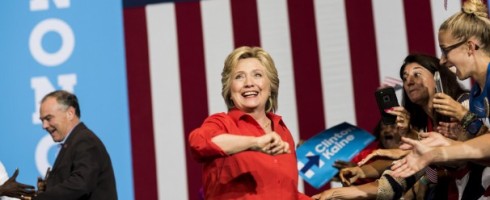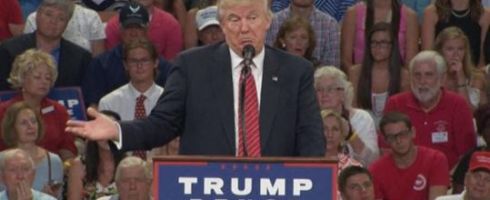On Friday, August 12, 2016, former President of the United States Clinton made remarks concerning a lack of public faith in the veracity of Hillary Clinton due to a large number of outright lies she told the public on numerous occasions associated with her lack of judgement handling confidential information.
http://www.westernjournalism.com/bill-clinton-calls-hillarys-email-scandal-biggest-load-of-bull
Former President Clinton: “First of all, the FBI director said when he testified before Congress, he had to amend his previous day’s statement that she had never received any emails that were classified. They saw two little notes with a ‘C’ on it — this is the biggest load of bull I ever heard — that were about telephone calls that she needed to make and the State Department typically puts a little ‘C’ on it to discourage people from discussing it in public in the event the secretary of state, whoever it is, doesn’t make a phone call.”
There are many indications of fabrication and deceit in this statement.
“First of all” – indicates there will be multiple points and the point the speaker is about to make is the most important point.
“the FBI director said” – this is the most important point. Someone other than Hillary Clinton made a statement more important than anything Hillary Clinton said or did.
Notice the most important thing the speaker needs to tell us is not a denial Hillary Clinton lied to the public. The lies of Hillary Clinton are an accepted fact by the speaker. Hillary Clinton lied. No argument there from either side.
“that she had never received any emails that were classified” – the speaker wants to make it clear to everyone Hillary Clinton did receive classified emails. The emails in question were “classified”, no doubt about it.
“this is the biggest load of bull I ever heard” – the entire statement hinges on this phrase which tells the acute listener the entire statement is “the biggest load of bull I ever heard”, especially the next part. It is physiologically difficult to tell a fabrication and one of the defense mechanisms of the mind is to insert truth, such as “this is the biggest load of bull I ever heard”. The speaker is correct, he is telling bull and he expects you to buy it.
The rest of the statement is a crude attempt to minimize the importance of a document marked “classified”. Perhaps the listeners will believe government officials marked only three emails out of tens of thousands “classified” because they contained simple return phone call information.
It is interesting former President Clinton, who spent most of an hour in private on a plane with the Attorney General just prior to the statements of the FBI Director, has such detailed information on the contents of classified emails, information which does not seem to be generally known by the media.
It is also interesting former President Clinton changes the number of classified emails with markings from the FBI Director’s statement of “three” to “two”. Apparently, losing emails runs in the Clinton family.
“But Comey reported that, of the tens of thousands of emails investigators reviewed, 113 individual emails contained classified information, and three of them bore markings signifying their classification status. Eight email threads contained top-secret information, the highest level of classification, 36 contained secret information, and the remaining eight contained confidential information.”
If the remarks of former President Clinton were the only statements about this issue known by a listener, a reasonable conclusion might be Hillary Clinton was only irresponsible with two emails. In this case, we have the benefit of other sources of information, so we know the truth to be well over one hundred classified emails were mishandled.
Former President Clinton assures us with this statement Hillary Clinton lied to the public on numerous occasions in the recent past.
Former President Clinton assures us with this statement he personally is not above lying if it suits his purposes.
Former President Clinton assures us with this statement, although he is an accomplished liar, he is no better at hiding his lies now than when he occupied the White House.


